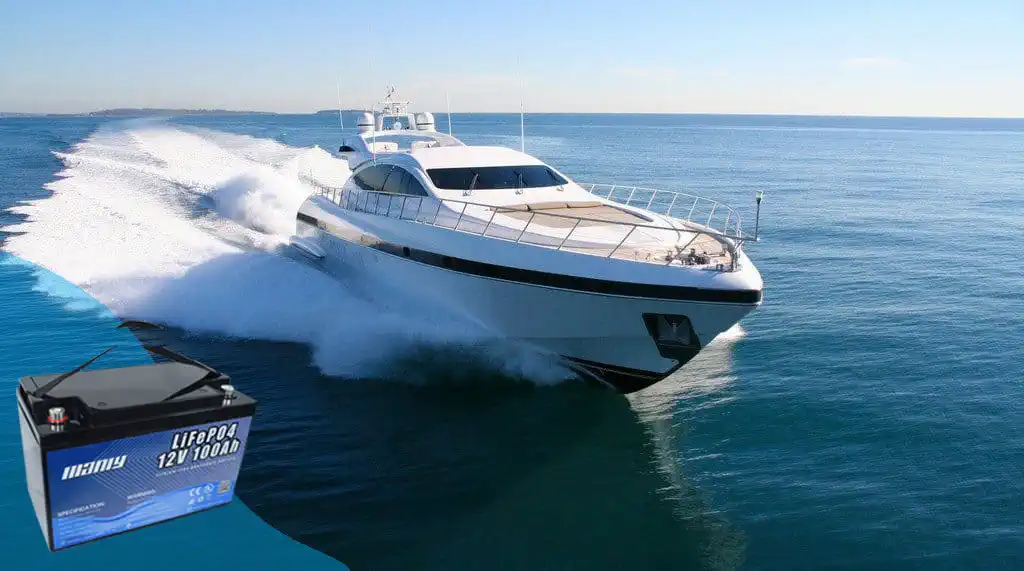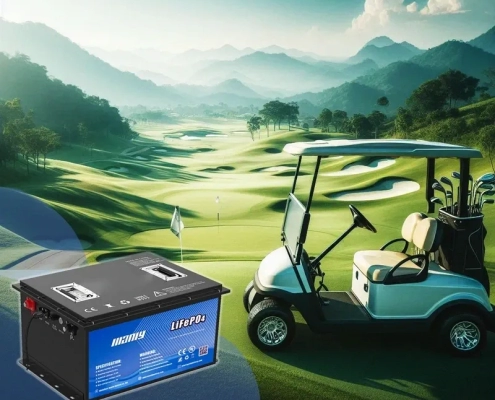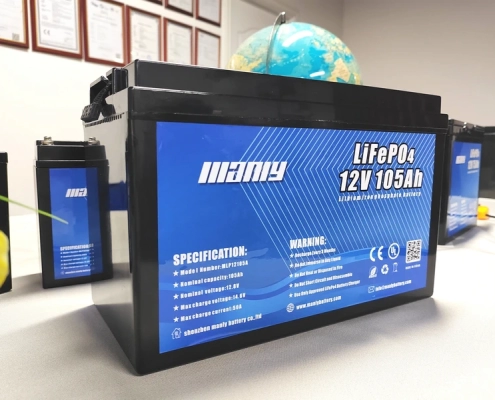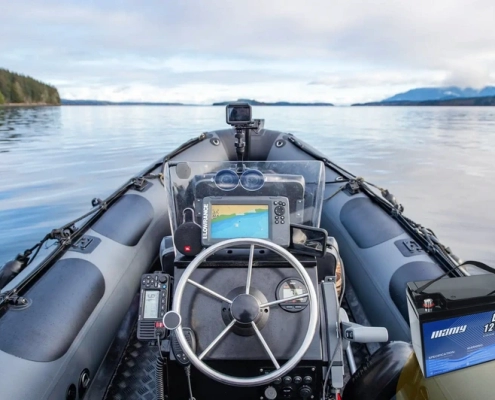How Long Do Marine Batteries Last?
Table of Contents
Marine batteries are essential for the reliable operation of boats, providing power for starting engines, running electronics, and operating trolling motors. Understanding the different types of marine batteries and factors that influence their life span can help boat owners make informed decisions, ensuring their batteries last longer and perform efficiently.
Types of Marine Batteries
There are three main types of marine batteries: starting battery, house batteries, and dual-purpose batteries.
Starting Batteries
Starting batteries, such as the 12 volt marine battery, are designed to provide short bursts of high power to start your boat’s engine. These batteries discharge a large amount of energy in a short time to get the engine running. Once the engine is on, the alternator takes over, supplying power to the boat’s electrical systems and recharging the battery. Starting batteries typically have a long lifespan, often lasting five years or more when used as intended. They are not designed to power accessories for extended periods and are most effective when kept at a high charge level.
House Batteries
House batteries power all the electronic systems and accessories on your boat. This includes lights, appliances, navigation systems, and other comforts of home while out on the water. House batteries are usually deep cycle batteries, like the 12v deep cycle marine battery, which provide a steady amount of power over a longer period. These batteries are designed to be deeply discharged and recharged many times. The cycle of discharging and recharging is why they are called deep cycle batteries. They have a varying lifespan depending on usage and maintenance but can typically last several years.
Trolling Motor Batteries
Trolling motor batteries are another type of deep cycle battery. These are used specifically for trolling motors, which need a consistent power source for extended periods. The 12v marine deep cycle battery is commonly used for this purpose. Trolling motor batteries need to endure deep discharges and are built to handle the demands of long fishing trips. Proper maintenance and charging can significantly extend their lifespan.
Dual-Purpose Batteries
Dual-purpose batteries serve both as starting and deep cycle batteries. While they can start your engine and power accessories, they are not as efficient or long-lasting as batteries dedicated to one purpose. Dual-purpose batteries are a compromise and are best suited for boats with limited space where having separate batteries for starting and accessories is not practical.
Each type of marine battery serves a unique purpose, and understanding their differences can help you choose the right battery for your needs. Whether you need the quick start of a 12 volt marine battery or the long-lasting power of a deep cycle battery, selecting the correct type ensures your boat operates smoothly and efficiently.
Factors Affecting Marine Battery Life Span
Marine batteries, particularly 12 volt marine batteries and deep cycle marine batteries, play crucial roles in boating. Several factors significantly influence their life span, from usage patterns to environmental conditions. Understanding these factors can help extend the life of your marine batteries.
Charge Depth
One critical factor is the depth of discharge (DoD), which measures how much of a battery’s total capacity is used during a discharge cycle. Regularly discharging a battery deeply can shorten its life span. For conventional batteries, it is recommended not to exceed a 50% discharge to maintain longevity. However, lithium batteries can withstand deeper discharges better, offering more usable capacity without affecting their overall life span.
Temperature Effects
Temperature impacts battery performance and life span significantly. Higher temperatures accelerate chemical reactions inside the battery, leading to potential damage like sulfation. For example, research indicates that for every 10-degree increase in temperature, the life span of a sealed battery might be cut in half. Conversely, colder conditions can also affect batteries by slowing down chemical reactions, which might cause faster discharge rates than in warmer conditions.
Charge Maintenance
Maintaining an optimal state of charge is crucial for extending battery life. Batteries should be fully recharged after each use. For periods of inactivity, using a trickle charger or battery maintainer helps keep the battery fully charged, preventing degradation. It’s important to adjust your charging strategy based on the type of battery—deep cycle marine batteries require different handling compared to standard marine batteries to optimize life span.
Terminal Care
Keeping battery terminals clean and free from corrosion is essential. Corroded terminals not only affect the battery’s efficiency but can also shorten its life. Regular maintenance to check and clean terminals can prevent premature battery failure.
Fluid Levels
For batteries that allow it, maintaining proper electrolyte levels is vital. While many modern batteries are maintenance-free, those that are not require regular checks to ensure the electrolyte covers the plates adequately. This is especially true for deep cycle marine batteries that undergo frequent and deep discharges.
Secure Installation
Proper installation and secure mounting of marine batteries protect them from excessive vibration and physical shocks, which can reduce their lifespan. Batteries should also be stored in a dry, ventilated area to prevent damage from environmental factors. In cold climates, removing batteries from boats and storing them at room temperature during the off-season can help preserve their capacity and readiness for the next season.
By addressing these factors, boat owners can significantly enhance the performance and extend the life span of their marine batteries, ensuring reliability and efficiency in their marine activities.
Average Life Span of Marine Batteries
The average life span of marine batteries depends on various factors, including the type of battery, usage, and maintenance. Here is a detailed look at the different types of marine batteries and their expected lifespans.
Starting Batteries
A typical 12 volt marine battery used for starting engines usually lasts between 5 and 10 years. These batteries are designed to deliver quick bursts of energy needed to start the engine and are then immediately recharged by the engine’s alternator. This frequent recharging keeps the battery in good condition, extending its lifespan.
Deep Cycle Batteries
Deep cycle marine batteries, which power onboard electronics and accessories, generally have a shorter lifespan of 2 to 5 years. These batteries are designed to be discharged deeply and then recharged. The frequent deep discharges they undergo can cause them to degrade faster than starting batteries. However, newer lithium-ion versions of deep cycle batteries can last much longer, ranging from 10 to 20 years, even with heavy use.
Trolling Motor Batteries
Trolling motor batteries, which are similar to deep cycle batteries, usually have a lifespan of 2 to 5 years. These batteries provide consistent power for trolling motors and are also subject to deep discharges, which can shorten their lifespan.
Dual-Purpose Batteries
Dual-purpose batteries, which combine the features of starting and deep cycle batteries, typically last between 3 and 6 years. Their lifespan depends heavily on how they are used on the boat. If they are frequently used for both starting the engine and powering accessories, they may wear out faster.
A: The best marine battery depends on your needs. Lithium iron phosphate batteries are ideal for longevity, lasting 10-20 years. For starting engines, AGM and gel batteries offer reliable performance.
2. What is a deep cycle marine battery?
A: A deep cycle marine battery is designed to provide a steady amount of power over a long period, making it ideal for running boat electronics and accessories. Unlike starting batteries, which deliver short bursts of energy, deep cycle batteries are built to be deeply discharged and recharged many times. This makes them suitable for use in trolling motors and other continuous-use applications. Typically, they last between 2 to 5 years, but newer lithium-ion versions can last up to 10 to 20 years with proper maintenance.






